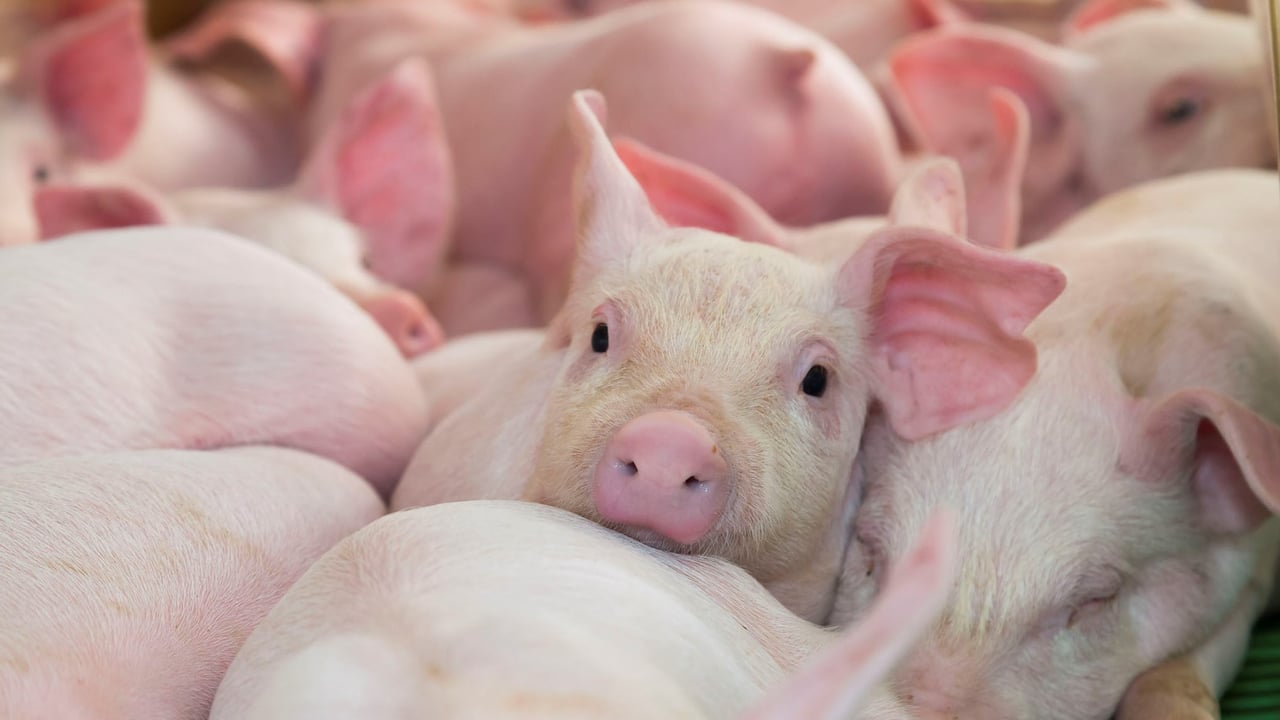Sponsored Article
Pig farmers and Ileitis: Spend money to save money
Sponsored Article

“Ileitis is omnipresent – it’s always with us," said Dr. Pat Kirwan from Highfield Vet Practice.
“Even in the most well-run, modern units, we still find Lawsonia intracellularis, the bacterial cause of ileitis," he said.
"In some ways it’s easier to find in the cleaner farms as there are fewer other things going on.”
"Second to that would be a lack of uniformity within the batches and a slippage in performance indicators like average daily live-weight gain and feed conversion.”
Ileitis infection
Lawsonia infection causes inflammation and thickening of the gut wall, even in the absence of diarrhoea. Vets can use faecal sampling to confirm the presence of gut pathogens to support their diagnosis.
Unlike short-term bacterial gut infections, part of the ileum becomes permanently damaged, causing long-term reduction in food absorption and digestive efficiency. Even subclinical infection can affect performance indicators such as FCR and ADWG for the rest of the pig’s life.
Given the current state of the pig industry, its the impact on performance that is causing concern.
“Pig farmers are staring into the abyss with regard to profitability at the moment," said Pat.
"Due to escalating costs as a result of the war in Ukraine, it’s hard to keep feed consistent and spending has been cut right back. Feed mills have been forced into a ‘least cost option’ rather than the ideal of ‘fixed formulation’.
"Farmers are losing a minimum of €0.30/kg pig meat produced, so it’s a case of what can we do to help? Is it possible to spend money to save money when times are difficult? Sadly, it’s a case of decreasing the losses rather than increasing the profits at the moment.”
Vaccination against Ileitis
Porcilis Lawsonia is an inactivated vaccine that is proven to reduce diarrhoea, loss of daily weight gain, intestinal lesions, bacterial shedding and mortality caused by Lawsonia intracellularis infection.
The vaccine can be given by intramuscular injection from three weeks of age and offers 21 weeks’ duration of immunity.
Porcilis Lawsonia ID is available for use with the IDAL intradermal device, and your vet can advise how both vaccines can be mixed with, or given at the same time as, other piglet vaccines.
“Progressive farmers that have started vaccinating against Lawsonia have seen that the cost of the vaccine is a price worth paying and they’ve successfully reduced their losses," said Pat.
"Hopefully, when the market does finally pick up, they’ll be in a position to really maximise potential. Results aren’t immediate, but within a pig cycle of around five months they’ll see considerable improvement.
"As well as improvements to feed conversion, weight gain and evenness of batches, there have been some other, unexpected benefits,” Pat explained.
"There’s also quite a bit of anecdotal evidence of a reduction in incidence of tail-biting.”
'Vaccination is cheaper than medicated feed'
Another factor affecting farmers trying to control bacterial diseases on pig production units is the recent changes in legislation affecting the prescription and supply of antibiotics.
“The batch treatment of pigs and the use of macrolides will be increasingly restricted, and vets and farmers will need to work together to reduce our reliance on antibiotics,” said Pat.
“The cost of vaccination is actually cheaper than medicated feed when included for 21 days, so that might convince some farmers to make the change.”
Studies in both the US and Denmark have shown that vaccination reduced the use of antibiotics and antimicrobial products to control Lawsonia infection.
“At a time when farmers are having to do everything they can to save a penny and the cost of feed is at an all time high, I would urge them to talk to their vet about how they can maximise the productivity of their pigs and ensure that food isn’t being wasted due to digestive disease,” said Pat.
More information on Porcilis Lawsonia and Porcilis Lawsonia ID is available from your veterinary practitioner, the product SPC or MSD Animal Health, Red Oak North, South County Business Park, Leopardstown, Dublin 18, Ireland.
MSD Animal Health can be contacted on: 01 297 0220 or emailed at: [email protected].
Visit the MSD website by clicking here.
Sponsored Article






